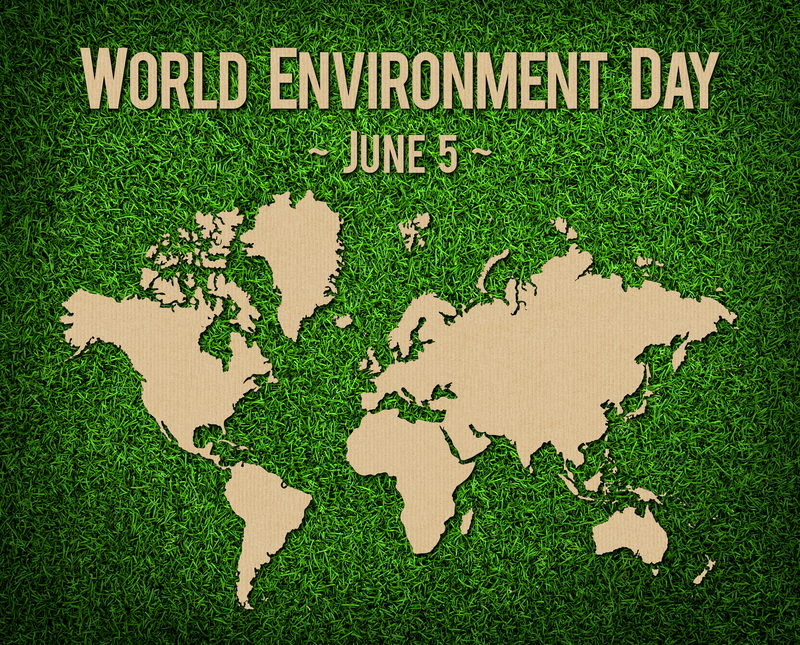Keep Your Surroundings Clean with Responsible PPE Waste Disposal
In an era defined by health awareness and public safety, proper disposal of Personal Protective Equipment (PPE) plays a pivotal role in maintaining cleanliness and safety in our communities. From bustling city centers to rural neighborhoods, responsible PPE waste management ensures that our environment remains healthy, dignified, and sustainable for future generations. This comprehensive guide explores the importance of PPE waste disposal, effective strategies for safe management, and how everyone can contribute to cleaner surroundings.

Understanding PPE and Its Growing Impact on the Environment
Personal Protective Equipment (PPE) includes items such as face masks, gloves, face shields, and gowns--essentials for protecting individuals from infectious diseases and hazardous materials. The surge in PPE usage, especially during pandemics, has brought forth a new environmental concern: PPE waste pollution.
Why Responsible PPE Waste Disposal Matters
- Environmental Protection: Discarded PPE items are made from durable, non-biodegradable materials. If not disposed of properly, they accumulate in landfills, waterways, and on streets, harming wildlife and polluting ecosystems.
- Public Health: Mishandled PPE waste can carry infectious agents, posing health hazards to waste collectors, sanitation workers, and the public.
- Cleanliness and Aesthetics: Accumulated PPE litter tarnishes the beauty of neighborhoods, parks, and public spaces, diminishing quality of life and community morale.
- Regulatory Compliance: Many regions have laws and guidelines mandating safe PPE disposal. Non-compliance can result in penalties for individuals and organizations.
Types of PPE Waste and Their Risks
Effective PPE waste disposal solutions start with understanding the different types of PPE waste and recognizing the potential risks associated with each:
- Masks: Most surgical and N95 masks are made from polypropylene plastics, challenging to biodegrade and likely to persist in the environment.
- Gloves: Vinyl, latex, and nitrile gloves can transmit contaminants if improperly discarded and can endanger marine life if they reach water bodies.
- Protective Gowns and Aprons: These are often used once and disposed of, adding to the bulk of infectious waste.
- Face Shields and Goggles: Made of hard plastics, these items can take centuries to break down if not recycled or properly discarded.
Potential Consequences of Irresponsible PPE Waste Disposal
- Environmental Degradation: Littered PPE clogs drainage, increases plastic pollution, and disrupts habitats.
- Health Hazards: Scavenging or accidental contact can expose humans and animals to pathogens.
- Visual Pollution: Streets, parks, and other public places strewn with PPE diminish a neighborhood's appeal and hurt tourism.
Best Practices for Responsible PPE Waste Disposal
With the negative impacts clear, it's imperative to adopt sustainable PPE waste disposal methods. Here are crucial steps individuals, businesses, and communities should follow:
1. Segregate PPE Waste from Regular Trash
- Use designated bins with clear labeling ("PPE Waste Only") to prevent mixing with recyclables and household waste.
- Households and businesses should keep PPE waste contained and separated in sealed bags.
2. Use Sealed, Puncture-Resistant Bags
- Seal used PPE in strong, puncture-proof bags to contain contaminants and prevent accidental spillage.
- Double-bagging is recommended for visibly soiled or high-risk items.
3. Follow Local Waste Collection Guidelines
- Review municipal instructions for disposal or collection of hazardous or medical waste, including PPE.
- Many cities operate special "PPE disposal stations" or hazardous waste pick-up days.
4. Educate Employees, Family, and Community Members
- Share guidelines for PPE waste disposal with coworkers, family, tenants, and the wider community.
- Promote signage and awareness campaigns in workplaces and public areas.
5. Avoid Reusing Single-Use PPE
- Do not attempt to clean or reuse single-use PPE, as it increases contamination risks and undermines safety protocols.
6. Consider Eco-Friendly PPE Options
- Where safe and appropriate, use washable fabric masks or biodegradable gloves to reduce disposable PPE waste.
Innovative Solutions for PPE Waste Reduction and Recycling
Tackling the challenge of PPE waste pollution requires innovation at both policy and practical levels. Here are emerging trends and solutions:
PPE Recycling Programs
- Companies and municipalities are piloting programs to collect and recycle PPE plastics into new materials like park benches, construction bricks, or even road surfaces.
Biodegradable and Compostable PPE
- Biotech firms are developing disposable masks and gloves from organic materials that break down naturally within months, addressing landfill concerns.
Personal Responsibility and Reusable PPE
- The use of certified, washable, and reusable PPE can considerably cut down on overall waste volume, especially in non-clinical and everyday settings.
The Role of Businesses and Institutions in Responsible PPE Waste Disposal
Workplaces, schools, hospitals, and public institutions produce the bulk of PPE waste. Their commitment to responsible management is critical for community health and environmental preservation.
- Install PPE-Only Disposal Bins: Clearly labeled and strategically placed bins prevent the mixing of hazardous waste with recyclables or regular trash.
- Implement Staff Training: Conduct regular workshops and distribute informational materials to ensure all employees understand safe disposal practices.
- Integrate with Waste Management Companies: Partner with licensed firms specializing in hazardous and medical waste to guarantee compliant and safe disposal.
- Maintain Transparent Disposal Records: Keep thorough logs to track the amount and type of PPE waste generated, fostering accountability and regulatory compliance.
Corporate Social Responsibility (CSR) and Community Engagement
- Businesses can sponsor public education campaigns on the importance of PPE waste management and support local environmental initiatives.
- Organize community clean-up drives focused on collecting improperly discarded PPE, inspiring civic responsibility and unity.
Global Regulations and Guidelines for PPE Waste Management
Governments worldwide are recognizing the pressing need for effective PPE waste regulation. Key guidelines include:
- World Health Organization (WHO): Recommends strict segregation, safe containment, and incineration or deep burial of contaminated PPE waste in health settings.
- Local Environmental Authorities: Mandate correct labeling, double-bagging, and in some cases, treatment (like disinfection) before disposal.
- Healthcare-Specific Waste Laws: Many countries require PPE to be classified as medical waste, handled only by trained personnel.
Enforcement and Compliance
- Regular audits, spot checks, and community education initiatives help ensure that PPE waste is managed correctly and efficiently.
- Penalties and fines for improper PPE disposal serve as deterrents against negligence and illegal dumping.
How Individuals Can Support Cleaner Surroundings Through Responsible PPE Disposal
The journey toward a cleaner, safer environment begins at the individual level. Here are simple yet powerful actions you can take:
- Never Litter PPE: Always dispose of used masks and gloves in covered bins instead of leaving them in public areas or outside buildings.
- Educate Friends and Family: Spread awareness about the dangers of improper PPE disposal and the correct procedures for safe handling.
- Participate in Local Clean-Up Drives: Volunteer or organize neighborhood events focused on collecting and properly disposing of PPE waste.
- Report Illegal Dumping: Notify local authorities if you notice persistent PPE littering or unsafe disposal practices in your community.
- Choose Eco-Friendly and Reusable Options: Whenever possible, opt for washable masks and gloves to minimize your environmental impact.

Frequently Asked Questions About PPE Waste Disposal
What should I do if my local area has no PPE-specific disposal bins?
If dedicated bins are unavailable, securely seal PPE waste in a strong bag before disposing of it in your general waste bin--never in recycling. Advocate with your local municipality for dedicated PPE collection points.
Can I recycle my PPE items?
Most disposable PPE cannot be recycled in regular household recycling systems due to contamination risks. Check for specialized PPE recycling programs in your area.
What are the dangers of improper PPE waste disposal?
Improper disposal exposes communities to infectious diseases, furthers environmental pollution, and threatens wildlife. It may also result in fines or legal action.
Conclusion: A Cleaner Future Starts with Every One of Us
Implementing responsible PPE waste disposal practices is more than an act of compliance--it's a collective investment in our planet's health and well-being. By understanding the consequences, embracing best practices, and spreading awareness within our communities, we can drastically reduce the negative impact of PPE waste. Whether you are an individual, a business, or a policymaker, your commitment to proper PPE waste management shapes a cleaner, safer, and more sustainable world for generations to come.
Let us take responsibility for our surroundings. Dispose of PPE waste thoughtfully and inspire others to join in keeping our environment clean and secure.
